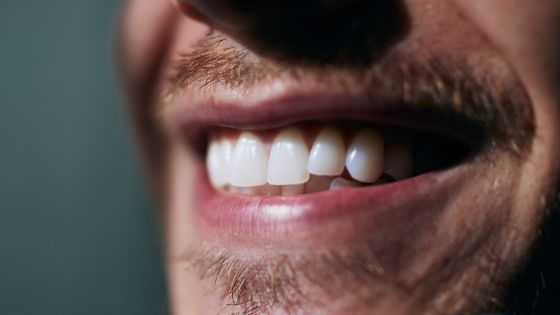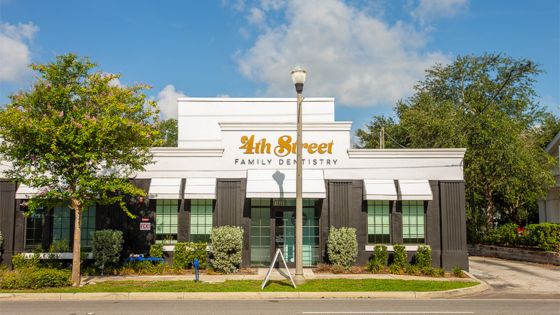How to Know If You Need Emergency Dental Care
How to Know If You Need Emergency Dental Care in St. Petersburg, FL
Dental emergencies can strike when you least expect them—during a meal, after an accident, or even in the middle of the night. Knowing when to seek immediate dental attention is crucial to preventing further complications and saving your teeth. At 4th Street Family Dentistry in St. Petersburg, FL, we want our patients to feel prepared and confident when facing a dental emergency.
We’ll explain what qualifies as a dental emergency, how to identify the warning signs, and what steps to take if you find yourself in need of urgent care.
What Is a Dental Emergency?
A dental emergency involves any situation where immediate dental attention is necessary to stop bleeding, alleviate severe pain, save a tooth, or treat an infection. Delaying treatment can lead to worsening symptoms, permanent damage, or even health complications.
Common dental emergencies include:
Severe toothaches
Knocked-out or loosened teeth
Broken or chipped teeth
Abscesses or signs of infection
Lost fillings or crowns
Trauma to the mouth, jaw, or gums
Excessive bleeding after dental work or injury
If you’re ever unsure, it’s always better to call your dentist for guidance. At 4th Street Family Dentistry, we’re here to assess your situation and provide prompt, effective care when you need it most.
Top Signs You Need Emergency Dental Care
1. Persistent or Severe Tooth Pain
While occasional sensitivity or minor discomfort may not require urgent care, a sharp, throbbing, or constant toothache could indicate a serious issue such as decay, infection, or nerve damage. Pain that interferes with eating, sleeping, or daily life should never be ignored.
2. Swelling in the Gums, Face, or Jaw
Facial swelling, especially when accompanied by fever or pain, may signal an abscess or infection. Dental infections can spread quickly and even become life-threatening if not treated promptly. If you notice swelling, it’s important to call your dentist immediately.
3. Knocked-Out Tooth
If a tooth is completely knocked out, time is critical. Try to handle the tooth by the crown (not the root), gently rinse it with water if dirty, and attempt to place it back in its socket. If that’s not possible, keep it moist in milk or saliva and get to your dentist within 30 minutes for the best chance of saving the tooth.
4. Cracked or Broken Teeth
A cracked or broken tooth may not always be painful, but it can expose the inner layers of the tooth, leading to infection or further breakage. If you chip a tooth and are in pain, or if the break is significant, contact your dentist right away.
5. Uncontrolled Bleeding
Bleeding from the gums after brushing may indicate gum disease, but excessive bleeding from an injury or following a dental procedure should be addressed immediately. Apply pressure with a clean cloth and contact your dentist as soon as possible.
6. Abscess or Pimple on the Gums
An abscess is a pocket of pus caused by a bacterial infection. It may look like a swollen bump or pimple on the gum and can be very painful. Left untreated, an abscess can lead to more serious infections, so don’t wait—seek emergency dental care.
What Isn’t Considered a Dental Emergency?
Not every dental issue is an emergency. Problems that can wait a day or two for treatment include:
Minor tooth sensitivity
A small chip with no pain
Lost fillings or crowns without pain
Mild discomfort from braces
That said, if you’re ever in doubt, don’t hesitate to reach out. We can help you determine whether your symptoms require immediate attention or if they can wait until your next appointment.
What to Do During a Dental Emergency
Stay Calm: Panicking can make the situation worse. Take a deep breath and assess the problem.
Control Bleeding: Use clean gauze and apply pressure.
Preserve Teeth: If a tooth is knocked out, keep it moist and avoid touching the root.
Apply Cold Compress: If there is swelling, apply a cold compress to reduce inflammation.
Contact 4th Street Family Dentistry: Call us as soon as possible so we can guide you on the next steps.
How 4th Street Family Dentistry Handles Dental Emergencies
At 4th Street Family Dentistry, we offer emergency dental care in St. Petersburg, FL to address urgent issues quickly and effectively. Whether it’s a severe toothache or a dental injury, our experienced team is equipped to provide:
Prompt appointments for urgent cases
Thorough exams and X-rays to identify the cause of pain
Gentle, compassionate care to relieve discomfort
Treatment plans designed to protect your long-term oral health
We understand that dental emergencies can be stressful and overwhelming. Our goal is to restore your comfort and peace of mind with prompt and professional care.
Preventing Dental Emergencies
While not all emergencies are avoidable, you can reduce your risk by:
Maintaining regular dental checkups
Practicing good oral hygiene at home
Wearing a mouthguard during sports
Avoiding chewing hard objects like ice or pens
Not using your teeth as tools to open packages
Call Your St. Petersburg Emergency Dentist Today
Dental emergencies don’t follow a schedule—but we’re here when you need us. If you or a loved one is experiencing urgent dental symptoms, don’t wait. Call 4th Street Family Dentistry today to speak with our caring team and get the help you need.
Your smile is our top priority, and we’re proud to be your trusted emergency dentist in St. Petersburg, FL.










